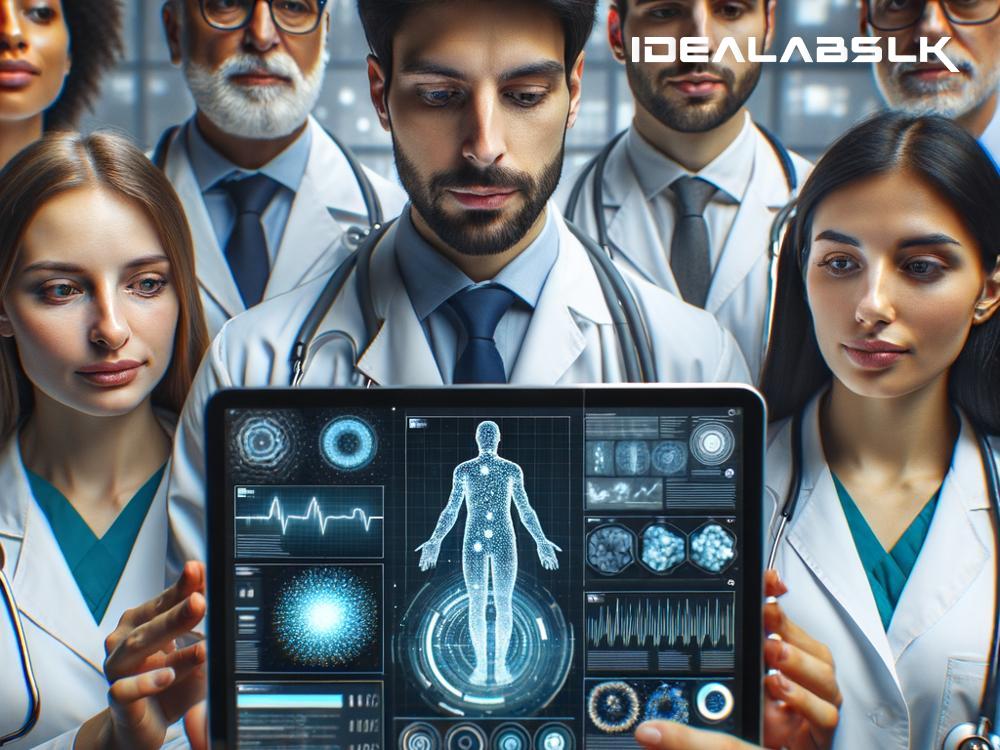Understanding the Role of Machine Learning Algorithms in Healthcare
In the bustling world of healthcare, where each second and each decision can heavily impact an individual's health, the emergence of machine learning algorithms has been a beacon of hope and innovation. Just like a well-trained assistant that knows precisely what you need even before you say it, these algorithms are transforming the way we understand, diagnose, and treat various health conditions. So, what exactly is this magical tool called machine learning, and how is it revolutionizing healthcare? Let's break it down into simpler terms.
What is Machine Learning?
Machine learning is a branch of artificial intelligence (AI) that gives computers the ability to learn from and make decisions based on data, without being explicitly programmed for those tasks. It's like teaching a computer to become smarter over time as it processes more information. Imagine giving a child a picture book; as they go through it repeatedly, they start recognizing and naming objects. Similarly, machine learning algorithms improve their performance as they are exposed to more data.
The Heart of Machine Learning in Healthcare
The healthcare industry generates an immense amount of data daily, from patient records and lab results to imaging studies and clinical trial outcomes. The true power of machine learning lies in its ability to sift through this vast sea of data, identify patterns, and make predictions or recommendations that can aid healthcare providers in making more accurate diagnoses and personalized treatment plans.
Key Areas Where Machine Learning Makes a Difference
-
Early Diagnosis and Predictive Analytics: Diseases like cancer, diabetes, and heart conditions can be life-threatening if not caught early. Machine learning algorithms can analyze data from various sources, including genetic information and lifestyle habits, to predict the risk of developing such diseases. This enables early intervention, drastically improving patient outcomes.
-
Tailored Treatment: Not every patient responds to treatment in the same way. Machine learning helps in understanding which treatment options are most likely to be effective for specific patient groups based on their unique health profiles. This approach, known as precision medicine, ensures that patients receive the treatment that's most likely to work for them.
-
Medical Imaging: In fields like radiology and pathology, professionals often rely on images to diagnose conditions. Machine learning algorithms, particularly those known as convolutional neural networks, have shown remarkable ability in analyzing medical images, sometimes even identifying details that the human eye might miss.
-
Drug Discovery and Development: Developing new medications is a costly and time-consuming process. Machine learning can fast-track this by predicting how different chemical compounds will react with the human body. This not only speeds up the process but also helps in identifying potential side effects early on.
-
Managing Patient Data and Workflow: Hospitals are complex systems with countless moving parts. Machine learning algorithms can help manage patient flow, predict admission rates, and optimize scheduling and resource allocation, enhancing the overall efficiency of healthcare delivery.
Challenges and Ethical Considerations
While machine learning in healthcare promises numerous benefits, there are significant challenges to overcome, including data privacy concerns, algorithmic bias, and the need for large, diverse datasets to train the algorithms effectively. Ensuring that these technologies are used in an ethical and responsible manner is crucial to gaining trust and achieving widespread adoption.
The Future of Machine Learning in Healthcare
As technology continues to advance, the potential for machine learning in healthcare only broadens. We're slowly moving toward a future where AI assistants provide real-time decision support to physicians, wearable devices monitor our health and predict anomalies before they become serious, and personalized health plans are crafted with the help of algorithms.
Simple English, Big Impact
In essence, machine learning is like a high-powered magnifying glass that helps us see through the massive amount of data to uncover hidden patterns, predict outcomes, and make smarter decisions. In the realm of healthcare, this means earlier detections, personalized treatments, and ultimately, better patient outcomes.
As we stand on the brink of this new era in medicine, one thing is clear: the integration of machine learning algorithms into healthcare is not just an advancement in technology—it's a leap forward in our quest to understand and nurture human health. The road ahead is complex and fraught with challenges, but the potential benefits for patients worldwide make it a journey worth embarking on.

